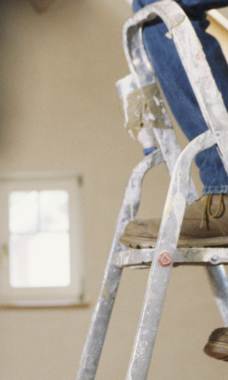As a childcare provider, you help children learn healthy habits and promote behaviors leading to lifelong health. The early learning experiences you provide promote brain development, socio-emotional skills, and support learning to help children succeed in school. We want to...
Thinking about renovating your home? If you are a do-it-yourselfer or hiring a professional, there are some health precautions you should know about before you begin a renovation project.
Vermont law requires all schools and licensed or registered child care facilities to test their drinking water for lead and remediate if levels are at or above 4 parts per billion (ppb).
For Immediate Release: April 9, 2024 Media Contacts: Ben Truman │ Vermont Department of Health 802-316-2117 / 802-863-7281 [email protected] Scott Waterman Vermont Agency of Agriculture, Food & Markets 802-622-4662 [email protected] Know the Health Risks when Raising Backyard Birds Even...
Lead poisoning can be prevented when you know what danger signs and hazards to look for in your home and in other places.
Act 66, passed in 2019, requires all Vermont school and child care providers to test their drinking and cooking water for lead. If lead is found at or above the action level, the tap must be taken out of service...
This information is for health care professionals. The Healthy Homes Lead Poisoning Prevention Program works with you to ensure that all 1- and 2-year-old children are tested for lead. Vermont law requires that all children are tested for lead at...
There is no safe level of lead in the body. Lead can harm anyone, but babies, young children and pregnant women are at special risk.
The risk of lead poisoning can be reduced when schools are maintained in a way that lowers or eliminates sources of lead—such as lead-contaminated soil, lead dust, and chipping or peeling lead-based paint.
PCBs are a group of human-made chemicals that can cause serious health problems. Vermont has requirements for schools built or renovated before 1980 to test for PCBs in indoor air and to make fixes if levels are high.






